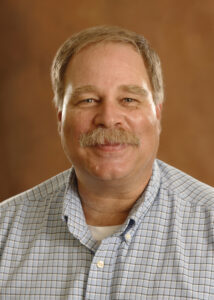- La Feria Community Holds Succesful Business Mixer Event
- Little Nashville to Take Place in Downtown Mercedes
- Lions Basketball Captures District Gold
- La Feria ISD Students Compete in Regional Chess Tournament
- Lions End First Half of 32-4A on a High Note
- La Feria ISD Held Another Successful Parent Conference
- Strong Appearance for Lions at Hidalgo Power Meet
- LFECHS Students Get to Meet Local Actress
- Students Participate in Marine Biology Camp
- Two LFECHS Students Qualify for All-State Band
UTRGV Alum Receives Fulbright to Study Female Micro-Entrepreneurship in Nicaragua
- Updated: June 29, 2018
by Vicky Brito

Dr. Michael Pisani, an alumnus of UTRGV legacy institution UT Pan American, has received the Fulbright U.S. Scholar Award to teach and study international business and entrepreneurship in Nicaragua. He is a graduate of the Robert C. Vackar College of Business & Entrepreneurship where he earned his PhD in international business in 2000. He now serves as a professor of international business at Central Michigan University in Mount Pleasant. For the Fulbright scholarship, he will go to Nicaragua in January 2019 for the spring semester, conducting research and lecturing at the Universidad Católica Redemptoria Mater in Managua. Courtesy Photo
RIO GRANDE VALLEY, TEXAS – Dr. Michael Pisani, an alumnus of UTRGV legacy institution UT Pan American, has received the Fulbright U.S. Scholar Award to teach and study international business and entrepreneurship in Nicaragua.
Pisani is a graduate of the Robert C. Vackar College of Business & Entrepreneurship, receiving his doctorate of international business in 2000. He now serves as a professor of international business at Central Michigan University in Mount Pleasant.
Starting in January 2019, he will spend the spring semester in Nicaragua, conducting research and lecturing at the Universidad Católica Redemptoria Mater in Managua, as part of a focused project to study the household and business impacts of female micro-entrepreneurship in impoverished neighborhoods.
For the past decade, Pisani has studied the in-house convenience stores, or tiendas, in Central America.
“Situated at the economic periphery, Nicaragua has perhaps as many as 100,000 of these tiny little stores primarily owned and operated by female entrepreneurs,” Pisani said. “The basic stock of a tiendita includes staple food supplies, hygienic products, junk food, school supplies and other specialty items, depending on the tiendita.
“Many of these businesses began operations with an investment of less than $100,” he said. “Owners and customers of tienditas lie at the intersection of poverty and entrepreneurship, where customers are likely to live in households earning just a few dollars a day and served by female entrepreneurs tied to the home earning on-average about three dollars a day.”
Pisani said a new type of tienda to reach Managua is the Mercado Fresco, or fresh market, which offers quality, affordable food accessible to low-income communities.
“Mercado Fresco seeks to recalibrate the low returns for tiendita operations through ongoing training and development, rigorous selection of franchisees, and economies of scale in the supply chain while providing a healthier product portfolio,” he said. “With the assistance of Nicaraguan university students, I seek to evaluate the socio-economic impact of Mercado Fresco and its stakeholders.”
Pisani’s former professor at UTRGV, Dr. Michael Abebe, associate professor of management, said he was thrilled to learn that his former student was selected as a Fulbright Scholar.
“Dr. Pisani represents the best of our PhD program,” Abebe said. “He embodies what this program, college and university stands for. He has consistently demonstrated excellence in his research, teaching and professional engagements.”
Abebe said being named a Fulbright Scholar is a major accomplishment as it is a very competitive process.
“It is especially gratifying to see that Michael’s deep expertise in international business – especially in the Latin American context – is rewarded like this, through the prestigious Fulbright fellowship program,” Abebe said.
ABOUT THE FULBRIGHT PROGRAM
The Fulbright Program is the flagship international educational exchange program sponsored by the U.S. government and is designed to build lasting connections between the people of the United States and the people of other countries. The Fulbright Program is funded through an annual appropriation made by the U.S. Congress to the U.S. Department of State. Participating governments and host institutions, corporations and foundations around the world provide direct and indirect support to the Program, which operates in more than 160 countries.


